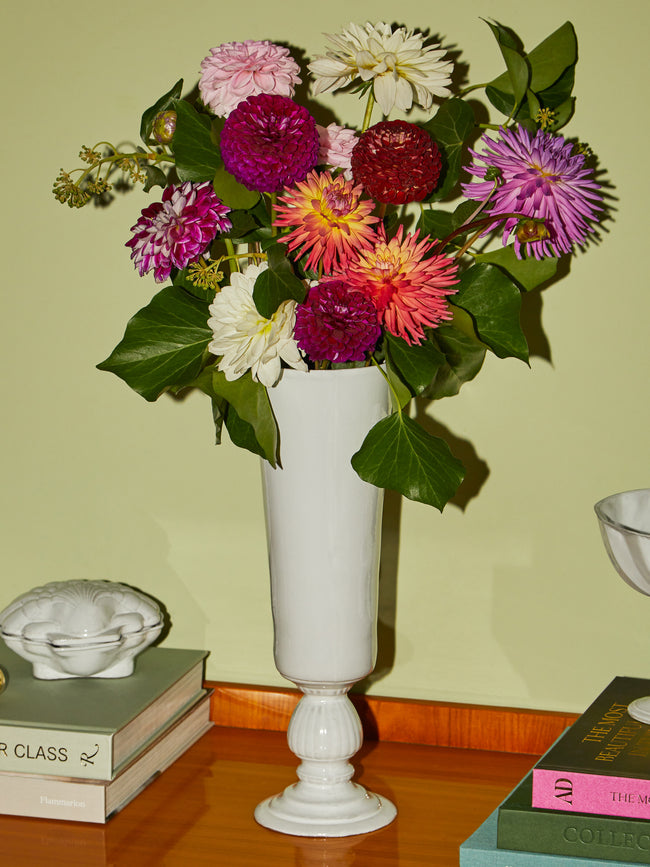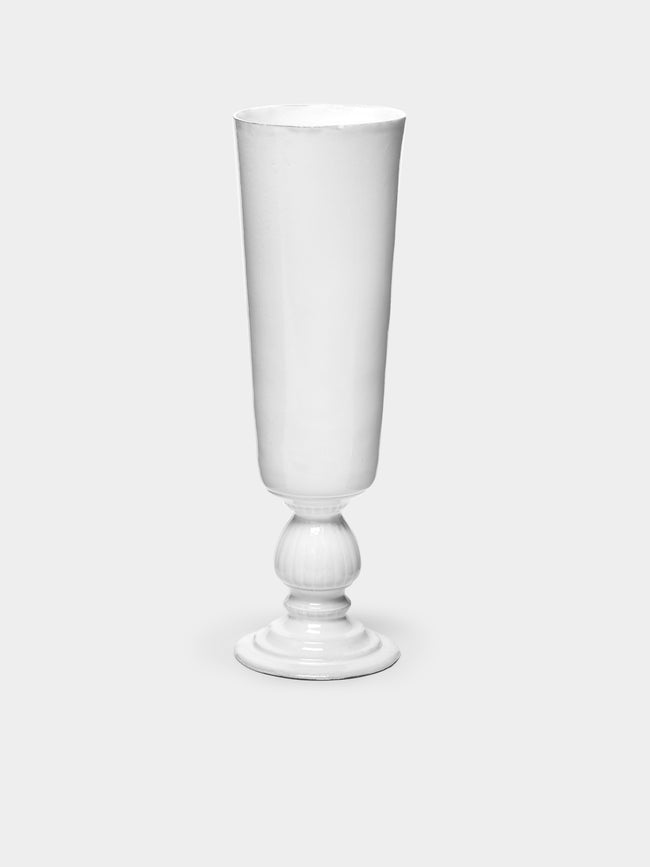

Astier de Villatte
Casper Large Vase
€315
FREE DELIVERY on all orders over €300 and FREE RETURNS
FREE DELIVERY on all orders over €300 and FREE RETURNS
Sobre Sauce Boat13cm (h) x 21cm (l) x 9cm (w)
€186
Sobre Large Salad Bowl26.5cm (l) x 26.5cm (h) x 13cm (w)
€255
Sobre Cake Stand32.5cm (l) x 32.5cm (w) x 11.5cm (h)
€320
View more: Astier de Villatte / Sauces & condiments


Meet the maker:
Old friends Ivan Pericoli and Benoît Astier de Villatte met at the prestigious École des Beaux-Arts in Paris, leading to the launch of Astier de Villatte in 1996. Since the beginning, they’ve been charmed with ideas of the imperfect, finding beauty in uneven glazes, dark pockmarks and subtle ripples. But these details only emphasise the craft tale behind each piece – stories that start with a single sheet of black terracotta clay extracted from Parisian quarries. They follow traditional Roman methods to bring each ‘dream object’ to life, shaping and inscribing each one with the potter’s initials and finishing with a high-shine white porcelain glaze.


Spend €300 more to enjoy free delivery
Your Shopping Bag is currently empty